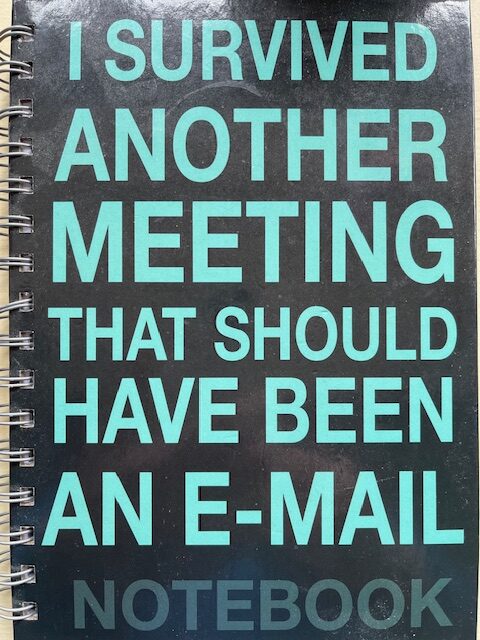Why don’t I get on with my manager? Its a question I get asked regularly in coaching sessions.
My coaching practice in recent times has had a key strand about helping executives land successfully in new organisations. Often that’s been where individuals have been granted outplacement support by their former employer. One of my Chiumento colleagues will usually have helped them land a new job. I then take over to help them prepare for their first 100 days in their new role.
What most want to discuss in those sessions is why things went wrong last time around. Getting a new job is great, but the legacy of a painful exit is usually accompanied by the fear of history repeating itself. That’s why we often talk about career transition – the journey isn’t over when you get a job offer. You still have work to do.
To move forward successfully you have to let go of the past. Which is why the conversation often starts with “what went wrong?” last time around. Invariably a strand of that revolves around concerns about relationships either with a boss or a major stakeholder.
Understanding preference
We all have preferences. And that hard wires us to behave in particular ways. This is a very old exercise but I think worth repeating.
- Get a pen and a piece of paper.
- Sign your name on the paper.
- Now put the pen in your other hand.
- Sign your name again.
You will inevitably have made the first signature using your dominant hand. It will have been done quickly – probably on “auto pilot”. You just do it naturally. And you don’t have to think about it. That’s because it is your preference.
The second signature will likely have been a completely different story. People talk about how that experience was uncomfortable – even unnatural. They talk about feeling clumsy or incompetent. And the end result is usually poor.
Behaviour at work follows a similar pattern. We behave in a way that feels natural and comfortable for us. And feel uncomnfortable when asked or expected to behave against type. The problem often comes when our preferred behaviour is at odds with those around us.
My notebook
The notebook above was given to me by my daughter – who “gets” what I am about. As an introvert I have a much lower need for social interaction – eg meetings – than others. Often I come back from meetings feeling like I could have saved hours of my life if we’d just exchanged a couple of emails.
What I recognise though is that the people who wanted the meeting have a different preference. They liked the idea of coming together as that fulfills some of their needs for social interaction. For them a series of emails would have been cold and unfriendly.
I remember many years ago working in a business where after work socialising was seen as very much part of the Company’s “work hard, play hard” culture. I found that extremely hard. By the end of a working day spent in meetings, and a huge open plan office, I’d already had my daily dose (possibly overdose) of people. I just craved time out on my own.
As a result I was initially labelled as “unfriendly” and distant. Not wanting to be a team player. Luckily my boss appreciated my needs were different and helped manage the situation. Over time we developed a highly successful reciprocal relationship where I joined in more than I’d do naturally, and the team would accept my need for “space”.
Reciprocity is key
Successful working relationships are inevitably about give and take. Recognising and accepting that your preferences may be different – finding common ground is key.
Your boss, for example, may not have the “warmth” you crave. Their preference may be to communicate in email not via unplanned chats. Your need for the latter might be seen by them as unwarranted interruptions in a busy working day.
You might be frustrated by your boss’s tendency to work in the future while your need is for answers to questions in the here and now. Or maybe their need for detail and data is seen by you as being “picky” or risk adverse. Your preference could be to focus on the human aspects of decisions – theirs on the commercial and efficiency dimensions.
Failing to recognise, and deal with, those different needs and preferences is often the root cause of workplace relationship difficulties.
As is often said, there are no “rights and wrongs” of preference. It is all about situational relevance. At home for example, your preferences may play out differently to at work.
Great teams value diversity. Your focus on detail may help your “big picture” boss avoid some embarrasing situations. Your planned and structure style may temper their more “seat of the pants” style of leadership. Leveraging those diverse but complimentary styles can be a powerful combination.
Psychometrics can help
I use a range of tools to help with this aspect of coaching. Probably my favourites are MBTI and FIRO-B. The final choice being down to the specifics of each case.
However even without the help of psychometrics a great coach can often unlock the challenges through careful probing and questionning.
Preventing the problem in the first place
Much of my coaching centres on how you establish your boss’s preferences and how they might either play to, or conflict with, your own. If you like “establishing your boss’s handwriting”. There will be lots of clues to that in the way they operate.
Adaptability is the key skill here. Recognising that you may have to work hard and act against your natural preference at times. And. of course, the more extreme your preferences, and theirs, are the harder you might have to work.
That’s where we go back to that second signature experience. It will feel uncomfortable or awkward at times. However you can master the need to flex your behaviours to different situations and different people.
In summary
Relationship dynamics is something we all have to master in the workplace. There are lots of great resources out there to help you explore this area further. Including from the Myers Briggs Foundation.
If you’d like to know more about our coaching work and how we can help improve individual and team dynamics get in touch.

With over 30 years of HR leadership experience, Ian joined Chiumento in 2008 and took over leading the business in 2013. He is also Chairman of our parent company, Aldeburgh Holdings. Ian’s role is primarily future focused – leading on strategy and ensuring that Chiumento evolves to meet changing market demands and business conditions. He remains an active talent management consultant and executive coach working with UK and international clients. A Chartered Member of CIPD, his background includes in-house HR roles as well as working for a global talent consultancy.

